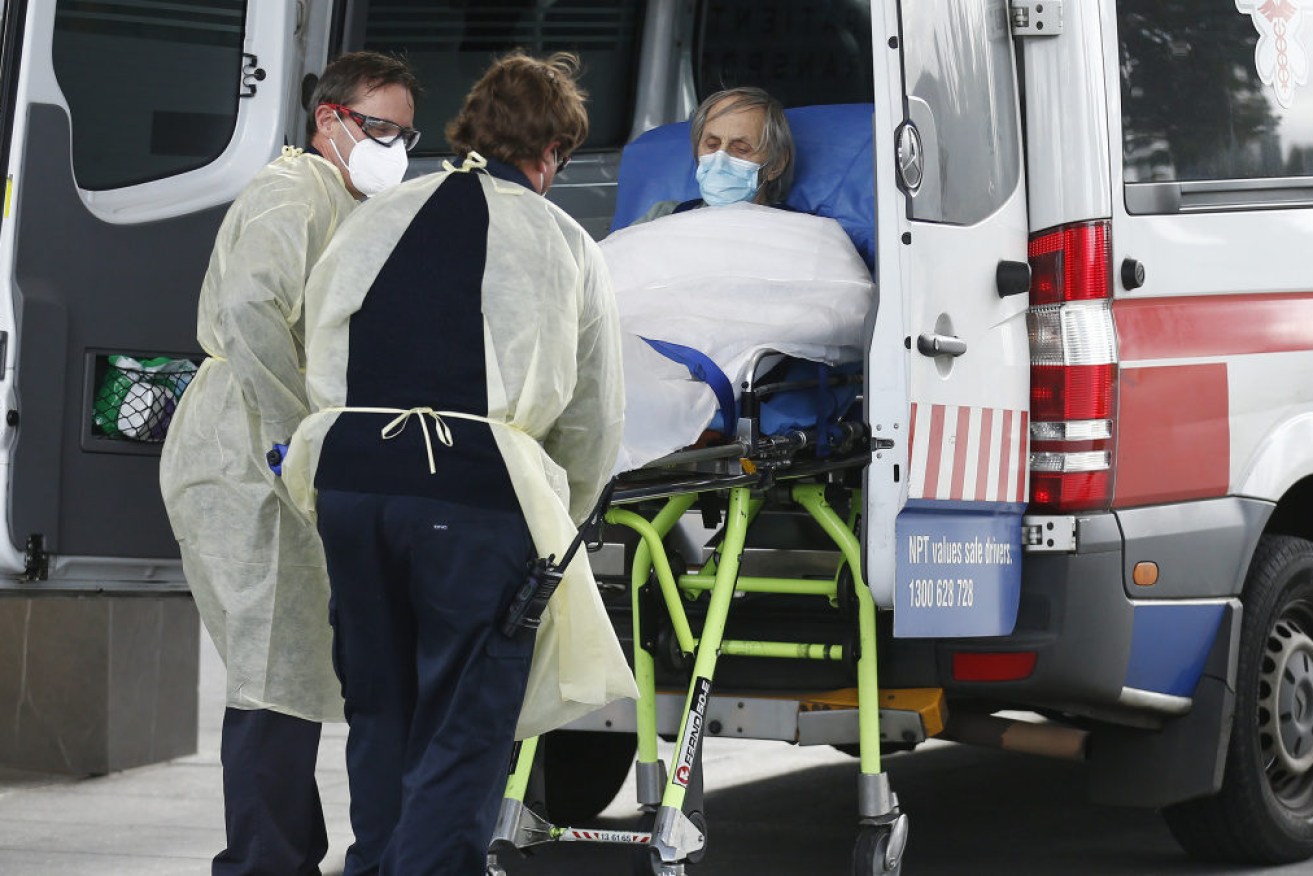The three gaping holes in our aged-care sector leaving Aussies exposed


The elderly have suffered more than anyone during the coronavirus pandemic, representing 94 per cent of deaths. Photo: AAP
The weak spots in Australia’s aged-care sector have once again been thrust into the spotlight as Victoria’s outbreak spreads to nursing homes.
Four aged-care facilities are now in lockdown including Arcare Maidstone, BlueCross Western Gardens, and Royal Freemasons’ Coppin Centre and Footscray sites.
It’s a familiar story to Victorians after more than 650 elderly residents died from the virus during last year’s second wave.
So, why has it happened again? Experts say there’s three weak spots allowing the virus to seep in.
Lack of testing
Di Mehmet, an aged-care worker at Holloway Keilor East in north-west Melbourne, said she was shocked when the facility told staff a few weeks ago they no longer had to undergo regular testing.
“I’ve been getting my COVID tests done outside of work every two weeks, for my own peace of mind,” she told TND this week.
To help Arcare Maidstone contain its coronavirus outbreak, the federal government has sent an emergency team of nurses to the facility to boost staff numbers.
However, TND understands those nurses are not being tested for COVID after every shift – only once every three days.
And that’s not good enough, according to Professor Marylouise McLaws, an infectious diseases expert at the University of New South Wales and member of WHO’s COVID-19 response team.
“A nurse must be tested at the beginning of each shift, prior to entering the residential aged-care facility with vulnerable residents, and she needs to be tested at the end of the shift to ensure she hasn’t picked up something and won’t take it back to the community,” Professor McLaws said.
The best way to do quickly test these nurses, who are being exposed to the virus at work, is via rapid antigen testing, she said.
“The results come back in 15 minutes … and these particular tests pick up early infection before symptoms,” Professor McLaws said.
Until recently, rapid antigen testing had been used to regularly test staff at the Howard Springs quarantine facility in the Northern Territory.
Home providers
On Friday, the Australian nursing and midwifery association sent a newsletter to members stating aged-care workers were no longer allowed to work at multiple facilities during Victoria’s outbreak.
However, it did not mention any rules for those providing at-home care.
“My facility manager told me I can still work in home care, but not in another nursing home,” Ms Mehmet told TND.
“With home care, yes, your elderly clients don’t go out. But it’s the people coming in and visiting who I worry about.”
Professor McLaws agreed we needed to do more to protect people receiving home care.
“If these private homes are of people who are 70 and older, well they’re in the group that make up 94 per cent of deaths to date in Australia,” she said, adding every at-home care provider must be fully vaccinated.
“They’re vulnerable to severe illness. If they have a disability or any health vulnerability, that could increase their risk of a severe infection.”
Casual workforce still a risk
Dr Sarah Russell, director of the Aged Care Matters advocacy group, said the aged-care sector has been plagued by systemic problems for years.
The only difference now was the coronavirus pandemic was bringing them to light.
“We just had a royal commission and I don’t even know if this government has read it,” Dr Russell said.
“This was all so predictable.”
Dr Russell pointed to the fact many aged-care workers were still not paid enough to only work at one facility, which meant they often took up extra shifts at different homes.
“The casualisation of this workforce has made residents vulnerable,” she said.
One aged-care worker, who did not wish to be named, told TND many staff members preferred to work as a casual because it gave them greater flexibility, not because full-time roles weren’t available.
It was an accepted part of the healthcare sector culture, she said.








